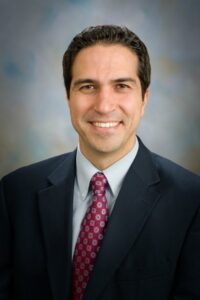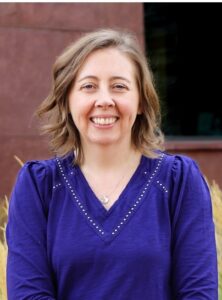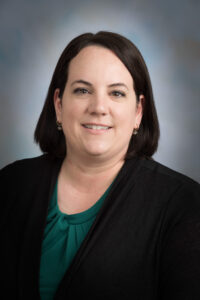


Colorado State University’s School of Global Environmental Sustainability or SoGES, has awarded a 2023-2024 Sustainability Curriculum Innovation grant to a team from the College of Health and Human Sciences and the Walter Scott, Jr. College of Engineering to infuse social equity and justice learning into coursework for construction management and civil engineering.
This interdisciplinary team includes Mehmet E. Ozbek, Professor and Joseph Phelps Endowed Chair, and Erin Arneson, Assistant Professor, both from the Department of Construction Management along with Rebecca Atadero, Professor, Department of Civil and Environmental Engineering.
Their grant proposal, “Developing Course Modules on Social Equity for Civil and Environmental Engineering and Construction Management Curricula,” embeds discussion of the social impacts of the built environment on communities and infrastructure end-users into the curriculum.
Goals and application to curriculum
The annual Sustainability Curriculum Innovation grants, in partnership with the CSU President’s Sustainability Commission, are intended to enrich curriculums by allowing faculty to creatively integrate sustainability concepts into new or existing courses. The goal is to then increase student exposure to interdisciplinary concepts. “Among the three pillars of sustainability – social, economic, and environmental sustainability – social equity has received little attention, particularly within the engineering and construction disciplines,” Ozbek said.
The proposed course modules will help undergraduate and graduate students in the construction management and civil engineering departments understand and incorporate social equity into their professional roles as key decision-makers in the design and construction process. “Our overarching goal with this grant is to help our students build stronger societies by reducing negative social impacts of the built environment, particularly in disadvantaged communities,” said Arneson.
Applied social equity
Specifically, the project will incorporate education about social equity into four courses at two educational levels, undergraduate and graduate, in two CSU colleges. In the Walter Scott Jr. College of Engineering, the courses CIVE 102, “Introduction to Civil/Environmental Engineering,” and CIVE 103, “Engineering Graphics and Computing,” are included. In the Department of Construction Management, CON 367, “Construction Contracts and Project Administration,” and CON 580 A3, “Multi-Criteria Decision-Making Techniques,” are the two courses the team will update with this grant.
For students in these classes, course modules will be tailored to account for their diverse levels of knowledge and needs. The undergraduate course modules will include broad introductions, and a historic overview of social equity. The graduate course modules will go into more detail and include special modules on decision-making. “Many students want their future work to impact their community and society, and I am excited to help students recognize the important roles professionals in the engineering and construction industries have,” said Atadero.
The Department of Construction Management is part of CSU’s College of Health and Human Sciences.